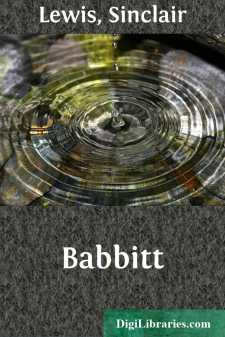Categories
- Antiques & Collectibles 13
- Architecture 36
- Art 48
- Bibles 22
- Biography & Autobiography 816
- Body, Mind & Spirit 145
- Business & Economics 28
- Children's Books 17
- Children's Fiction 14
- Computers 4
- Cooking 94
- Crafts & Hobbies 4
- Drama 346
- Education 58
- Family & Relationships 59
- Fiction 11834
- Foreign Language Study 3
- Games 19
- Gardening 17
- Health & Fitness 34
- History 1378
- House & Home 1
- Humor 147
- Juvenile Fiction 1873
- Juvenile Nonfiction 202
- Language Arts & Disciplines 89
- Law 16
- Literary Collections 686
- Literary Criticism 179
- Mathematics 13
- Medical 41
- Music 40
- Nature 179
- Non-Classifiable 1768
- Performing Arts 7
- Periodicals 1453
- Philosophy 66
- Photography 2
- Poetry 897
- Political Science 203
- Psychology 45
- Reference 154
- Religion 516
- Science 126
- Self-Help 85
- Social Science 82
- Sports & Recreation 34
- Study Aids 3
- Technology & Engineering 59
- Transportation 23
- Travel 463
- True Crime 29
Our website is made possible by displaying online advertisements to our visitors.
Please consider supporting us by disabling your ad blocker.
Our Mr. Wrenn, the Romantic Adventures of a Gentle Man
by: Sinclair Lewis
Description:
Excerpt
CHAPTER I
MR. WRENN IS LONELY
The ticket-taker of the Nickelorion Moving-Picture Show is a public personage, who stands out on Fourteenth Street, New York, wearing a gorgeous light-blue coat of numerous brass buttons. He nods to all the patrons, and his nod is the most cordial in town. Mr. Wrenn used to trot down to Fourteenth Street, passing ever so many other shows, just to get that cordial nod, because he had a lonely furnished room for evenings, and for daytime a tedious job that always made his head stuffy.
He stands out in the correspondence of the Souvenir and Art Novelty Company as "Our Mr. Wrenn," who would be writing you directly and explaining everything most satisfactorily. At thirty-four Mr. Wrenn was the sales-entry clerk of the Souvenir Company. He was always bending over bills and columns of figures at a desk behind the stock-room. He was a meek little bachlor—a person of inconspicuous blue ready-made suits, and a small unsuccessful mustache.
To-day—historians have established the date as April 9, 1910—there had been some confusing mixed orders from the Wisconsin retailers, and Mr. Wrenn had been "called down" by the office manager, Mr. Mortimer R. Guilfogle. He needed the friendly nod of the Nickelorion ticket-taker. He found Fourteenth Street, after office hours, swept by a dusty wind that whisked the skirts of countless plump Jewish girls, whose V-necked blouses showed soft throats of a warm brown. Under the elevated station he secretly made believe that he was in Paris, for here beautiful Italian boys swayed with trays of violets; a tramp displayed crimson mechanical rabbits, which squeaked, on silvery leading-strings; and a newsstand was heaped with the orange and green and gold of magazine covers.
"Gee!" inarticulated Mr. Wrenn. "Lots of colors. Hope I see foreign stuff like that in the moving pictures."
He came primly up to the Nickelorion, feeling in his vest pockets for a nickel and peering around the booth at the friendly ticket-taker. But the latter was thinking about buying Johnny's pants. Should he get them at the Fourteenth Street Store, or Siegel-Cooper's, or over at Aronson's, near home? So ruminating, he twiddled his wheel mechanically, and Mr. Wrenn's pasteboard slip was indifferently received in the plate-glass gullet of the grinder without the taker's even seeing the clerk's bow and smile.
Mr. Wrenn trembled into the door of the Nickelorion. He wanted to turn back and rebuke this fellow, but was restrained by shyness. He had liked the man's "Fine evenin', sir "—rain or shine—but he wouldn't stand for being cut. Wasn't he making nineteen dollars a week, as against the ticket-taker's ten or twelve? He shook his head with the defiance of a cornered mouse, fussed with his mustache, and regarded the moving pictures gloomily.
They helped him. After a Selig domestic drama came a stirring Vitagraph Western scene, "The Goat of the Rancho," which depicted with much humor and tumult the revolt of a ranch cook, a Chinaman....








